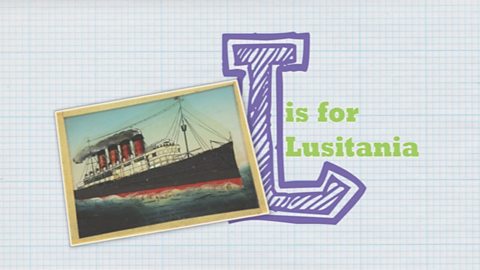Video summary
Newsreel and commentary about Jack Cornwell, a boy of sixteen serving on HMS Lancaster, who died at the Battle of Jutland in 1916.
Jack was posthumously awarded the Victoria Cross and his bravery under fire was widely reported, earning him the nickname βJutland Jackβ.
A dramatic monologue introduces us to Jackβs mother, who tells us his story.
This clip is from the series WW1 A to Z.
Contains potentially upsetting content; teacher review is recommended before use in class.
Teacher Notes
Pupils could draw or paint portraits of Jutland Jack and add captions to say why he is still remembered.
The children could go on to find out more about medals of all kinds, from those awarded in war to those awarded in civilian life. Why do pupils think people wear medals?
The children could use fabrics and other materials to make collages showing their favourite medal designs.
Pupils could search online and in the index of textbooks for more details of Jackβs life story. They could also look for information on other young combatants of World War One, using search terms such as βboy soldierβ. Are there any examples of young Scottish soldiers who were famous for their bravery?
Pupils could also consider how Jackβs example was used to inspire others during the war. In the monologue, Jackβs mother says it doesnβt matter that one of his brothers posed for a press photograph in Jackβs place. Do your pupils agree?
This short film is suitable for teaching history at Key Stage 2 / Second Level or above.
I is for In Flanders Fields. video
Newsreel, photographs and commentary introduce the Canadia Lieutenant Colonel John McCrae, who wrote the famous poem 'In Flanders Fields'.

K is for Keep The ΒιΆΉΤΌΕΔ Fires Burning. video
Newsreel and commentary about the role of patriotic songs in World War One, plus a dramatic monologue about the songwriter Ivor Novello.

L is for Lusitania. video
Newsreel and a dramatised monologue about the Lusitania, a passenger ship that was sunk by a German U-Boat off the coast of Ireland.
